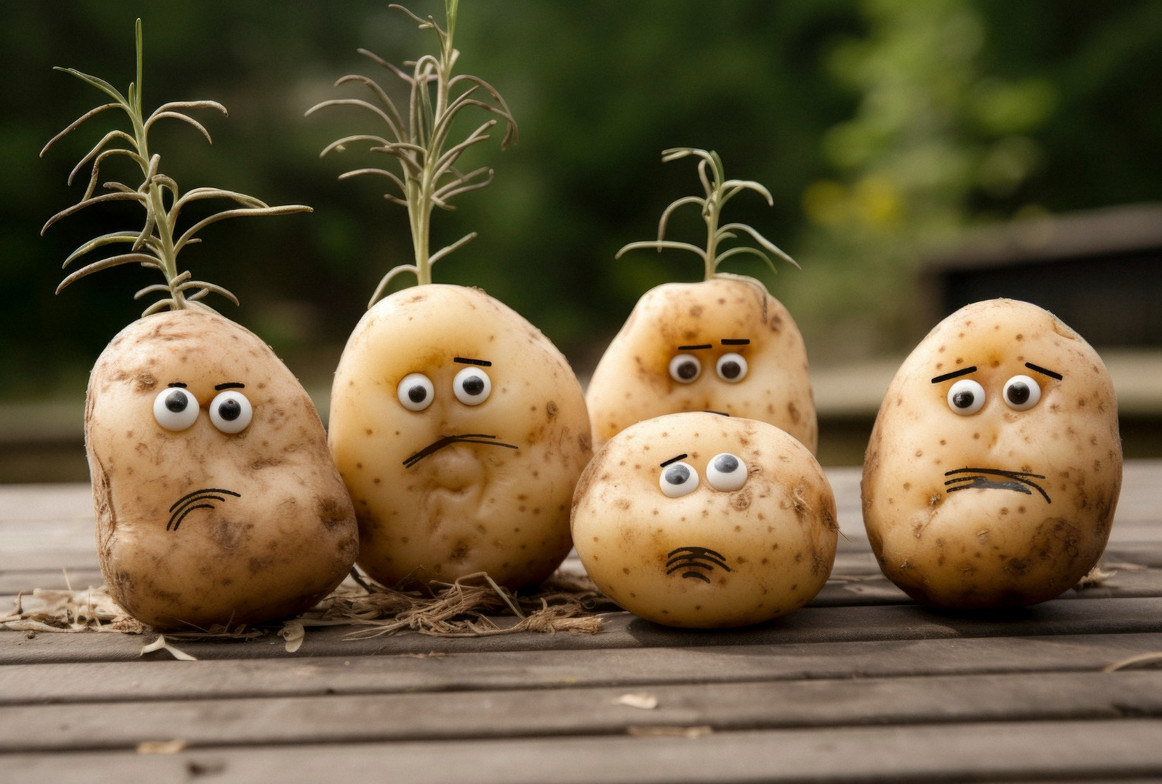
Today, we celebrate the potato. Yes, that potato—humble, versatile, and beloved across continents. From crispy fries to comforting mash, the potato is a staple in kitchens and cultures worldwide. But what if I told you this unassuming root vegetable has a few things in common with our mental health?
Let's dig in (pun intended).
1. Potatoes Thrive Underground—So Do Many of Our Emotions
Potatoes grow beneath the surface, unseen, developing in the dark. Much like our emotions, what lies beneath often powers what we see above. As psychologists, we know that suppressed or hidden emotions can shape behaviour, mood, and even physical health.
Acknowledging what’s beneath—grief, anxiety, anger, shame—is the first step toward healing. Just like digging up potatoes, it might take some effort, but the reward is nourishment and insight.
2. There’s No One Right Way to Be a Potato
You can roast 'em, mash 'em, boil 'em, spiral them into fries—potatoes are the nonjudgmental vegetable. Mental health works the same way. There’s no single right way to "do life" or manage emotions. For some, it's therapy. For others, it’s journaling, meditation, movement, or mindfulness.
Don’t compare your mental health journey to someone else’s five-star baked potato. You’re still nourishing yourself—and that matters.
3. Potatoes Don’t Need to Be Fancy to Be Valuable
A plain potato might not win any beauty contests, but its value lies in its sustenance. In therapy, we often encourage clients to embrace the “ordinary” moments: eating a meal, taking a walk, and showing up when it’s hard. Healing isn’t always dramatic. Sometimes, it’s just about showing up—starch and all.
4. Resilience? Potatoes Know All About That
Potatoes grow in some of the harshest climates and poorest soils. They've survived famines, fuelled revolutions, and adapted across cultures. That’s resilience. And if a spud can do it, so can we.
Resilience isn't about never struggling—it’s about bouncing back (or maybe just rolling forward) despite it.
5. From Couch Potatoes to Comfort Food: Let’s Talk Coping
Comfort food gets a bad rep sometimes—but let’s be real, there’s a reason we crave carbs when we’re down. They can trigger serotonin release, a feel-good neurotransmitter. The key is moderation and mindful comfort, not shame.
Whether it’s a bowl of cheesy potatoes or a session with your therapist, comfort is part of healing.
Final Thoughts:
On this International Day of the Potato, let’s honour the spud—not just for feeding us, but for reminding us of the psychological truths it symbolizes:
-
Growth happens beneath the surface
-
There’s no one way to be “okay”
-
Ordinary is powerful
-
Resilience is quiet but real
-
Comfort has a place in recovery
So go ahead—raise a fork to the potato. Your brain might just thank you for it.
Need support for what’s going on under the surface? You don’t have to do it alone. Therapy can help you dig a little deeper—judgment-free, just like a spud.
.JPEG)
.JPEG)




